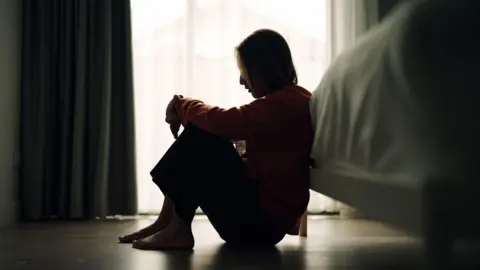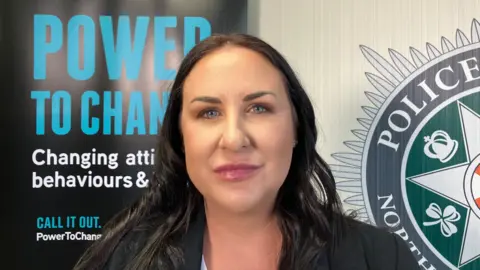The NFL comes to Dublin: How it became the richest sports league in the world
Listen | 26:19

Read more on post.
Aer Lingus cabin crew’s trade union is calling on members to reject the offer of a 4 per cent pay boost from the airline in a vote next week, it has emerged.
About 2,000 flight attendants will begin balloting on Tuesday on the offer of a 3 per cent or €960-a-year increase, whichever is greater, from January 1st next year, followed by 1 per cent or €320, whichever is greater, from July 1st.
However, the Aer Lingus cabin crew branch committee of their trade union, Fórsa, is recommending that they vote against the offer as most members say the deal does not go far enough.
The news comes as trade union Siptu is running 10 different ballots across its members in the airline on pay increases. Willie Noone, Siptu’s divisional organiser, said on Friday that a result from those votes is due on October 9th.
A letter from the Fórsa branch committee to members shows that 90 per cent of those who took part in a poll responded that the offer was not acceptable.
[ Aer Lingus non-pilot staff to ballot on 4% pay riseOpens in new window ]
Fórsa’s members’ news bulletin reported the branch committee’s recommendation on Friday.
Union official Lisa O’Connell explained that the poll showed clearly that the proposals “did not go far enough” in closing a pay gap that emerged between cabin crew and pilots during the Covid-19 pandemic, when airline workers suffered severe pay cuts.
Listen | 26:19
According to a letter to members, Fórsa asked the company to bridge this by paying cabin crew two €1,500 tax-free vouchers, but management said it could not do this.
Ms O’Connell pointed out that pandemic pay cuts hit cabin crew hard.
“Many are still trying to recover financially as a result of those Covid-era measures, and our cabin crew members believe the deal falls short of undoing the legacy of those measures,” she said.
Cabin crew suffered a 70 per cent pay cut while pilots’ earnings fell 50 per cent.
Stemming from the pandemic, pilots were due to pay €34 million in total back to the company through pay deals.
However, following weeks of industrial action in June and July 2024, an agreement that increased pilot pay by 17.75 per cent also wrote off that debt.
That deal prompted cabin, ground and craft workers’ unions to seek a 4 per cent pay increase from the company.
However, Aer Lingus sought increased productivity in return. Talks have been taking place for several months.
Mr Noone explained that Siptu, whose members include 1,500 ground crew at the airline, is running 10 separate ballots simultaneously as the company is proposing different measures for different groups across Dublin, Cork and Shannon airports.
He confirmed that voting was continuing. Aer Lingus did not comment.

Read more on post.
Kevin SharkeyBBC News NI
A student who was sexually assaulted after meeting a man on a dating app has appealed to other survivors to seek immediate help to ensure there’s a record of the abuse.
The woman, who was 20 at the time, was attacked during a short-term relationship after she moved to Belfast to begin her university studies.
Last year, 25-year-old Fearghall Joseph Mulgrew, of Mullaghmoyle Road in Stewartstown, County Tyrone was jailed after pleading guilty to sexually and physically assaulting the woman.
Sophie, not her real name, believes her attendance at a sexual assault referral centre afterwards was crucial to the prosecution.
A judge at Belfast Crown Court said Mulgrew subjected the woman to a “degrading and frightening” experience, and he used her “as a sexual toy whose personal integrity and feelings were entirely subservient to your sexual desires”.
He was given a 22-month sentence in April 2024, serving 14 months on licence.
The court was told Mulgrew was a student in Belfast when he initially met the woman on the dating app Tinder in March 2021.
They agreed that the woman would come to his accommodation for “rough” intercourse at 03:00 GMT.
The woman said it was not something she had done before, but she agreed to try it, and the pair had consensual sex.
The victim, who wishes to remain anonymous, has now spoken about her ordeal and explained that they had been in a casual relationship for about a month.
“The day of the incident he’d made it clear that he wanted to do things his way which included rough sexual contact. I hadn’t quite expected it to be what it was,” she told BBC News NI.
“He bit me, you know, in intimate areas where I had to kick him to get him off, to get him to stop, and even though we had a safe word he made it very obvious that that wasn’t even going to work, and he held my mouth closed with his teeth so I couldn’t say anything.
“That’s what sticks with me the most, the biting, it was all over my face.”
Sophie, who has since left Northern Ireland, went to the Rowan sexual assault referral centre for help soon afterwards but she did not report the incident to the police until almost a year later.
She now believes her attendance at the centre was crucial to the subsequent prosecution of her abuser.
“I would advise that, even if you don’t know, because sometimes you can be so confused and so in shock that you don’t know but you think, then just get yourself looked at.
“For me, if I hadn’t gone to the Rowan, me reporting to the police would have been 100% more difficult. They wouldn’t have had my statement from the time, they wouldn’t have had photographs, and they wouldn’t have had all the swabs and things that they took.
“That evidence is invaluable especially if you are going into court,” she said.
 Reuters
ReutersIt has been three years since the Police Service of Northern Ireland (PSNI) launched an action plan to tackle violence against women and girls (VAWG).
The PSNI said it had made 5,042 arrests by the end of August 2025 under new legislation and conducted hundreds of targeted patrols.
They said they have also put in place four stalking protection orders using the new laws.
Each month, 84 arrests have been made on average for domestic abuse, there have been an average of 19 arrests each month for the offences of stalking, threatening and abusive behaviour, and 76 arrests each month for non-fatal strangulation.
In the 12 months to July 2025 there were 21,729 violence against women and girls (VAWG) offences recorded – a reduction of 4% compared to the previous 12 months.

Det Ch Insp Leah Crothers, one of the PSNI’s tackling VAWG leads, said they “remain committed to doing everything” they can to prevent harm and call out unacceptable attitudes and behaviours.
“We have always been clear that it will take a societal effort to make a real change,” she added.
“Tackling violence against women and girls requires commitment from all — where perpetrators are held to account, communities stand together, and we work with partners to make every space safe. This remains our goal.”
Sophie said “too many men had blurred lines of consent and a misogynistic view on life”.
“I and so many other young women have suffered because of this. I am standing up to say it is not right and the only way to put a stop to it is to educate men and boys and for women like me to feel supported enough to report.”
If you are affected by domestic abuse, there is a range of support services available via the BBC’s Action Line page.

This post was originally published on this site.
UKRAINIAN FAMILIES WHO recently moved into an estate in Clonmel, Co Tipperary have said they are in fear for their safety after a series of attacks and threats against them in recent weeks.
In one incident, a car had its windows smashed and was set alight by a group of youths.
Speaking to The Journal, one Ukrainian woman who asked for anonymity outlined a litany of incidents she and her family have faced since they moved in last July, including threats to their children, getting pelted by stones, and thefts from homes.
The modular housing estate, containing 82 homes, was built specifically to provide shelter for Ukrainian people escaping Russia’s invasion of their country.
The unfolding situation at the new housing estate was addressed by Justice Minister Jim O’Callaghan this week, who said he feared that violence was being “orchestrated for broader political purposes” in the town.
Some far-right groups honed in on the site over the past year as it was being built, with videos regularly posted on social media of the building progress and the people working on the houses. At times drones were used to take footage of the site.
It’s understood that the attacks are mainly being carried out by a group of young people who live near the estate.
These sources said that the incidents started after security who had been hired to guard the site during its construction left once the homes were completed and opened during the summer.
A number of construction workers were set upon by a group opposed to the site in May last year, resulting in one worker being hospitalised.
The Department of Justice confirmed that after it learning of incidents of antisocial behaviour, it agreed to extend the provision of security at the site. However, the department confirmed this “security was wound down and ultimately completely removed from the site” on 8 September.
Just over a week later, late on the night on 16 September, the torching of a car owned by one of the residents took place.
Families met with gardaí following this incident.
“First they broke the window, then they put threw a bottle inside and burned all inside. There was strong rain which I think helped [to contain the fire], or else the outside of the car might have been burned,” the woman said.
A Garda spokesperson confirmed gardaí are investigating an incident of criminal damage by fire to a car that occurred between 10.45pm and 11.50pm that night.
Following that incident, a number of the new residents who were witnesses met gardaí to report the incident.
“All we wanted is to feel we are safe, and we don’t feel we are safe right now,” the woman said.
“It’s a foreign country, and it’s very hard to communicate and find a common language with each other. We don’t want conflict.”
She described how she has recently taken to rushing her daughters in off the street when some teenagers have appeared with up to six dogs off the leash.
The woman, her husband and their two daughters fled north-east Ukraine amid Russia’s continued attacks to come to Ireland 18 months ago.
They lived at accommodation provided by the State in Co Wexford before they had to vacate and move to Clonmel.
But the woman said she and her husband were reluctant to move to Clonmel as they were aware of other incidents that took place as the housing estate was being built.
“We knew the situation, we knew there were problems. We didn’t want to come here but we were told that if we refused then we’d have no rights to ask for, that we’d be on our own,” she said.
“Our neighbours don’t understand that some of us were forced to move here. We had no choice.”
An Oireachtas Justice Committee meeting heard serious concerns expressed this week about the situation at Heywood Road.
Local Fine Gael TD Michael Murphy read aloud messages from one resident to the Justice Minister.
The messages described how Ukrainian families who live in the modular homes “constantly face a hostile attitude” since moving in.
“During this time, there have been busted windows, broken fences, stolen scooters and bikes. Our children constantly provoked. We fixed everything, called the guards, but the situation is escalating,” the message said.
Responding to Murphy, the minister said he was concerned by what lay behind the attacks.
“There should be no criminal damage that’s perpetrated on property. There should be no intimidation of individuals who are providing security. And I regret to say, I believe much of this has been orchestrated for broader political purposes,” O’Callaghan said.
In a statement to The Journal, the Department of Justice said it was treating these incidents seriously.
Officials have continued to liaise with housing body Tuath which oversees the estate.
It said a second follow up meeting with officials, Tuath, An Garda Síochána and Tipperary County Council has been scheduled for early next week to “address the impact of anti-social behaviour on the site and to discuss the actions that can be taken to curtail antisocial behaviour” in the area.

Read full article on post.
King Charles III and Queen Camilla will meet Pope Leo XIV as part of a state visit to the Vatican in October.
A previous official visit to the Vatican was postponed earlier this year because of the poor health of the pontiff’s predecessor, Pope Francis.
The King and Queen paid a brief private visit to Pope Francis in April on their 20th wedding anniversary, in what proved to be one of the late pope’s last meetings with a high-profile visitor before he died later that month.
The rearranged visit, announced by Buckingham Palace, will emphasise the friendly relations between the Catholic Church and the Church of England, of which the King is supreme governor.
The details for the visit have not yet been announced, but it will fall during a special “jubilee” year for the Catholic Church, held every 25 years, with the King and Queen to join Pope Leo under the theme of “pilgrims of hope”.
The King has worked for many years to build bridges between faiths and the visit is a sign of togetherness between the Catholic and Anglican traditions.
Earlier this month, the first Catholic funeral for a member of the Royal Family in modern times was held for the Duchess of Kent. The King and Queen attended her Requiem Mass.
Also this month, the King went to the Oratory of St Philip Neri in Birmingham, founded by the 19th Century Catholic theologian and philosopher, St John Henry Newman. The King, then the Prince of Wales, had previously attended the canonisation of Cardinal Newman in Rome in 2019.
The King and Queen’s private meeting with Pope Francis in April 2025 fell during their state visit to Italy.
The meeting – at the Vatican’s Casa Santa Marta, where Pope Francis had been convalescing – lasted 20 minutes, with Buckingham Palace saying how “deeply touched” they had been by the Pope’s “kind remarks” on their wedding anniversary.
Following Francis’s death, Robert Prevost, born in Chicago, became Pope Leo XIV after he was elected by the conclave of cardinals.
European Parliament snubs Orbán with vote to shield Italian MEP from Hungarian arrest


Life, loss, fame & family – the IFI Documentary Festival in focus


Fatal, flashy and indecent – the movies of Adrian Lyne revisited
EU renews support for WHO’s Universal Health Coverage Partnership


Key oceans treaty crosses threshold to come into force


Farewell, Sundance – how Robert Redford changed cinema forever


Twilight at 20: the many afterlives of Stephenie Meyer’s vampires


What is KPop Demon Hunters, and why is everyone talking about it?